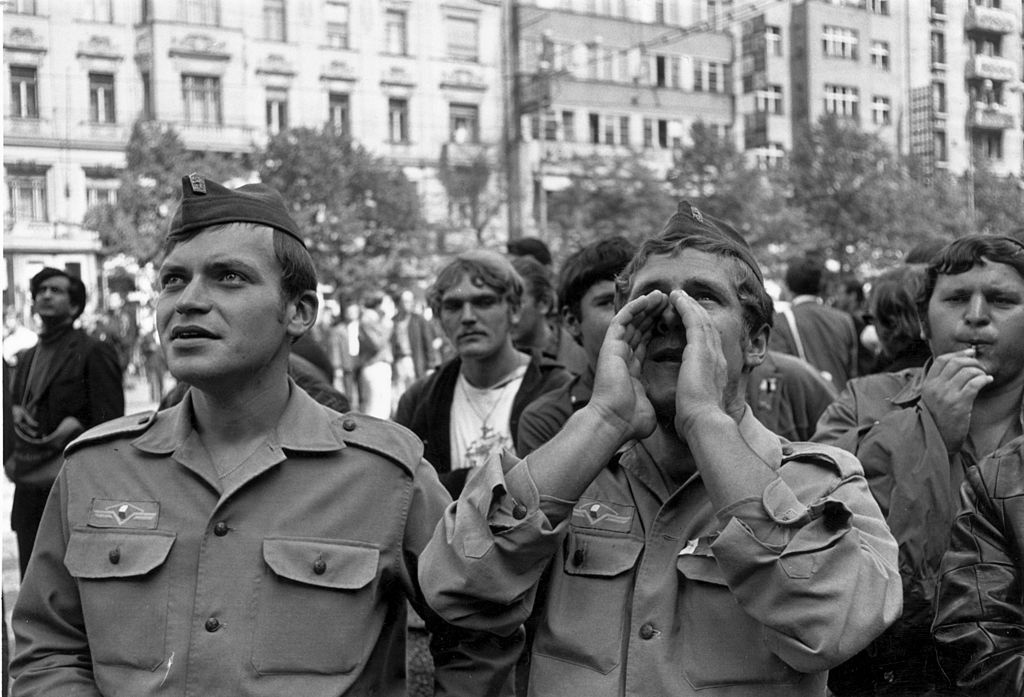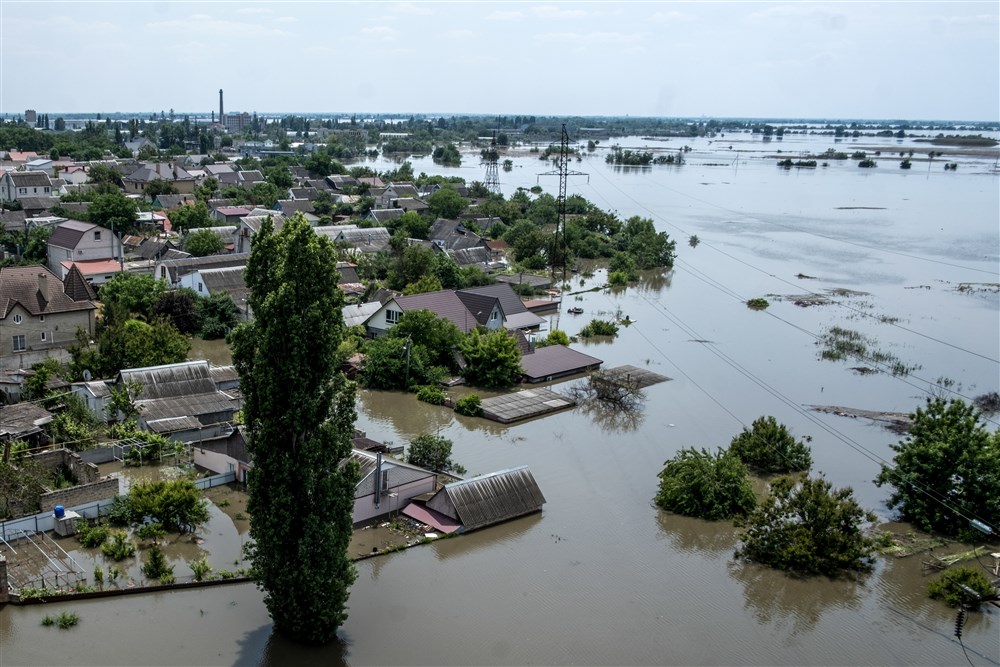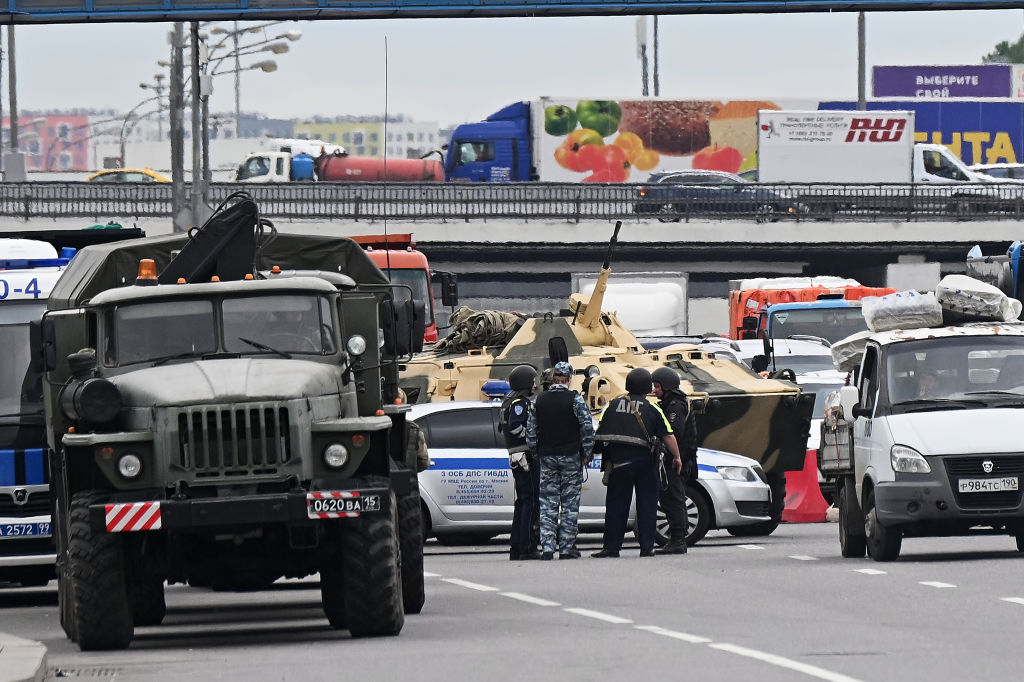The world was treated to a first-class show this past weekend. It had it all: a breathtaking plot; a top box-office protagonist in Prigozhin; the ultimate villain in Putin; fast-paced, real-time, edge-of-your-seat drama; and a sudden, unexpected denouement. No wonder that mentions of “pass the popcorn” were all over Twitter on Saturday.
In our increasingly media-twisted culture, suffused with absurdities, the spectacle of a former cook playing Caesar at the head of a band of sledgehammer-wielding, convict-stormtroopers collectively called Wagner after the great romantic composer – and delicately known in Russia as the “musicians” – is not only a smash hit with the wider public but with the experts too.
Many of the Western commentariat not only took this 24-hour adventure to be a believable, serious and viable real coup attempt – and in the initial confusion it’s easy to see why – but proceeded to draw deep conclusions from it about the weaknesses of Russia and how long Putin has got left. This is where caution is advised, lest we add to our growing list of mistaken assumptions about Moscow, making the task of Ukrainian victory that much harder.
The very idea that this was an attempted coup does not add up. A coup always aims to seize political power and remove the leader. It also implies a wider conspiracy. Yet not a single Russian official or military unit took Wagner’s side, while those local authorities on the ground which didn’t challenge the “musicians” along the way – law enforcement, regular army troops in Rostov etc – likely had no orders to do so, either as a result of confusion or because it was judged safer to concentrate a response closer to Moscow rather than risk isolated fights at a disadvantage.
In addition, Prigozhin’s cause was not expressly political or publicly directed against Putin (ostensibly, his prime targets were Shoigu and Gerasimov). Nor, indeed, are we hearing of any arrests of important figures in the Kremlin who would have been involved in such a conspiracy.
Furthermore, Prigozhin chose to start in the city of Rostov – which he never left – and then sent a rather limited force (estimated between 2,500 and 5,000 men) towards the capital: an effectively hopeless strategy, even with speed on Wagner’s side. The practical aspects of the entire operation ran against every basic principle of a successful coup which must always begin where the seat of government is. There is no explanation for why experienced military men serious about capturing the Kremlin would fail to see this.
But if it was intended to be “merely” a mutiny – in Prigozhin’s euphemistic terms, a “protest march” – with the limited aims of safeguarding Wagner’s independence from the Russian MoD and forcing the replacement of Shoigu and Gerasimov, how could the Wagner leader imagine any of this would not effectively become, or at least be seen as, an attempt to seize State itself, i.e. a coup, especially with his forces heading towards Moscow?
We thus have a halfway house – more than a mutiny (given the move against the capital) but less than a coup (given the total unpreparedness for one) – interrupted half way through.
The real question mark in all this is the role of the security services – chiefly the FSB – whose number one mission is to prevent such events in the first place. In the smoke and mirrors of Russia’s secret world it is impossible to tell for sure whether this was an operation to “bait” Prigozhin out, or a matter of genuine complicity in the Wagner plot.
The latter is hard to believe: not only because the top siloviki – like Bortnikov, the head of the FSB – are Putin’s closest allies for decades, with their fate entwined with his; but also because, if they did want to move against the boss, they’d more likely opt for a real “palace coup” than help stage a Wagner show and put themselves into the hands of a hothead like Prigozhin.
In the end, a scheme encouraging Prigozhin to cross the Rubicon and giving him false hope of insider support – in the classic Russian intelligence tradition of provokatsiya – may be the most plausible explanation. The purpose? To lance the Wagner boil in the Russian system. Prigozhin had become both powerful and popular: his troops, the victors of Bakhmut and Soledar, were national heroes.
How else to solve this massive problem cleanly than by making Prigozhin and Wagner discredit themselves in an attempt to “stab Russia in the back” – as Putin so carefully phrased it on TV? Who would protest the dissolution of Wagner, who would take their side, now that they’ve taken on, in broad daylight, the “constitutional order” of the Motherland?
In his Monday night address, Putin, as well as heaping praise on the security services, also played up the gravity of the previous day’s threat to his regime. This was uncharacteristic for a man always concerned with appearing strong. It suggests specific concern with making sure the pseudo-“coup” really was taken seriously by everyone, lest there be any Wagner sympathisers across government who may yet dream of supporting Prigozhin in the future.
Even taken on the face of it – a straight attempt at a coup, somehow undetected by the services – Prigozhin’s action suggests, if anything, that Putin’s regime is still united and still has the ability to shut down a surprise armed challenge to its rule within hours with little blood spilled. These events made everyone contemplate, in earnest, the real possibility and implications of chaos or civil war in Russia; no one, not even Russia’s enemies, seemed to like what they saw in their mind’s eye.
This bizarre one-day flare-up may well play, in the end, in Putin’s favour: he has now strengthened his position as the perceived guarantor of Russia’s internal stability, and he has neutralised the loose cannon that was Wagner under Prigozhin. Putin’s end will come one day, but in the meantime the West should focus on the hard work of building up its defences and supporting Ukraine, rather than hoping that some miracle would solve our problems for us.






Not so much Zeitenwende as progressive puffery: Germany’s first national security strategy is long on modish clichés and short on military thinking